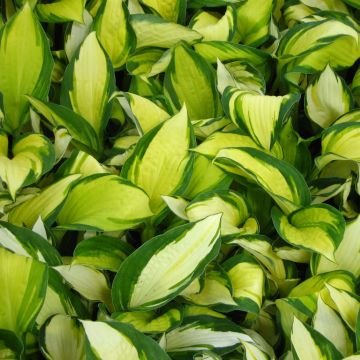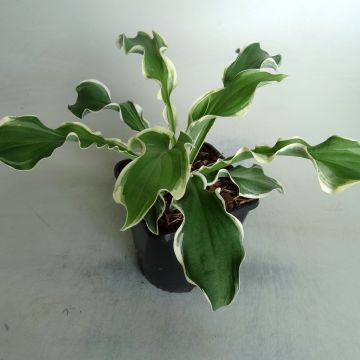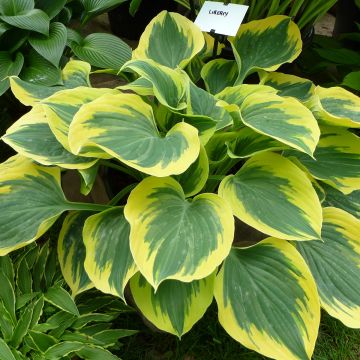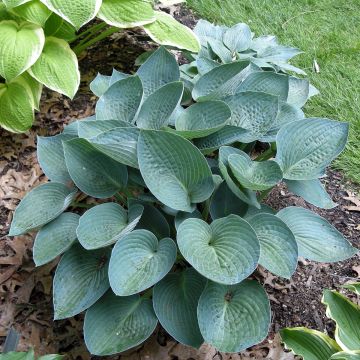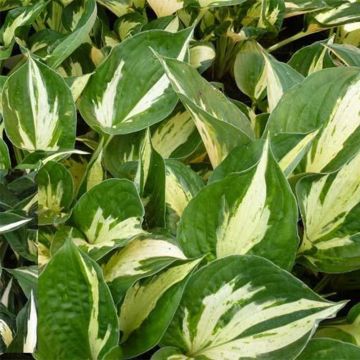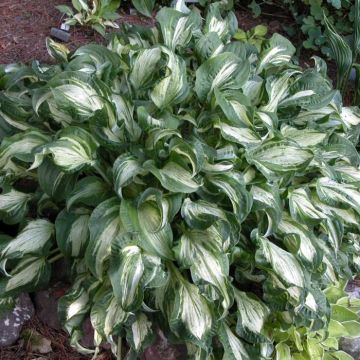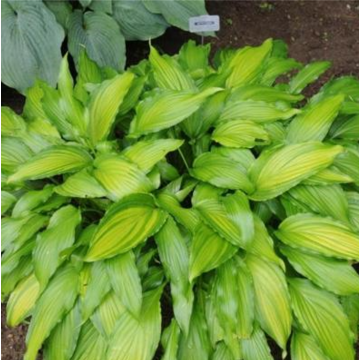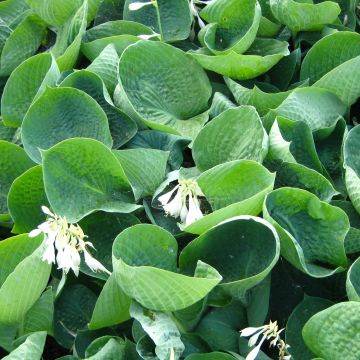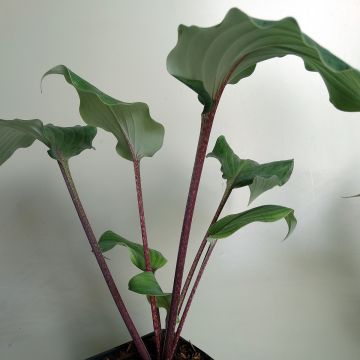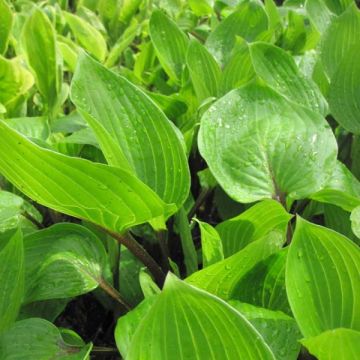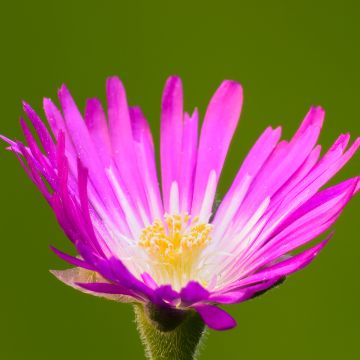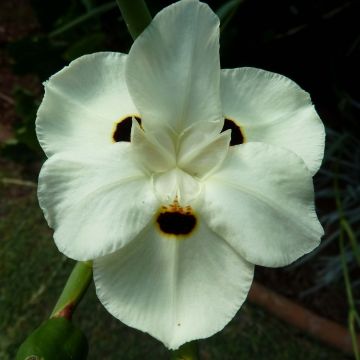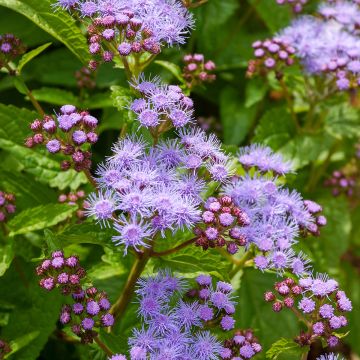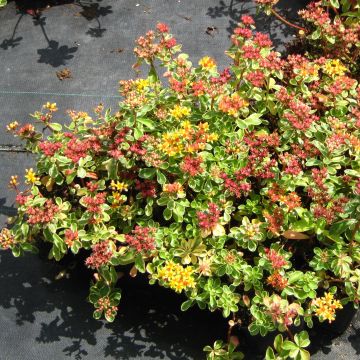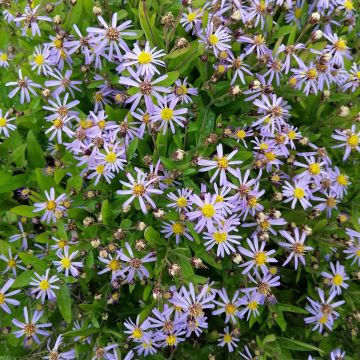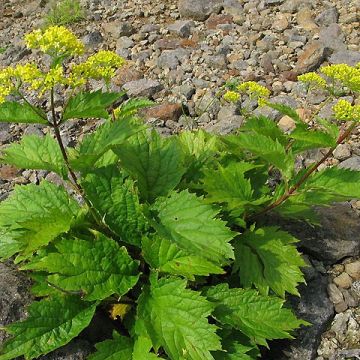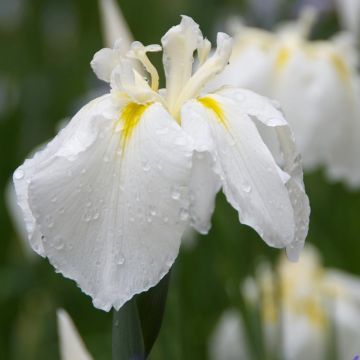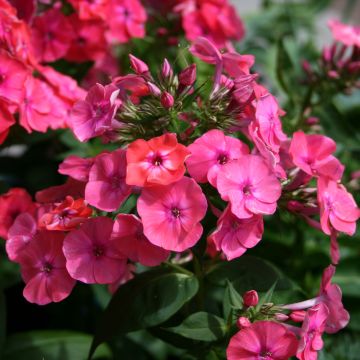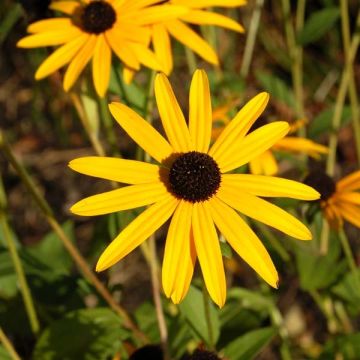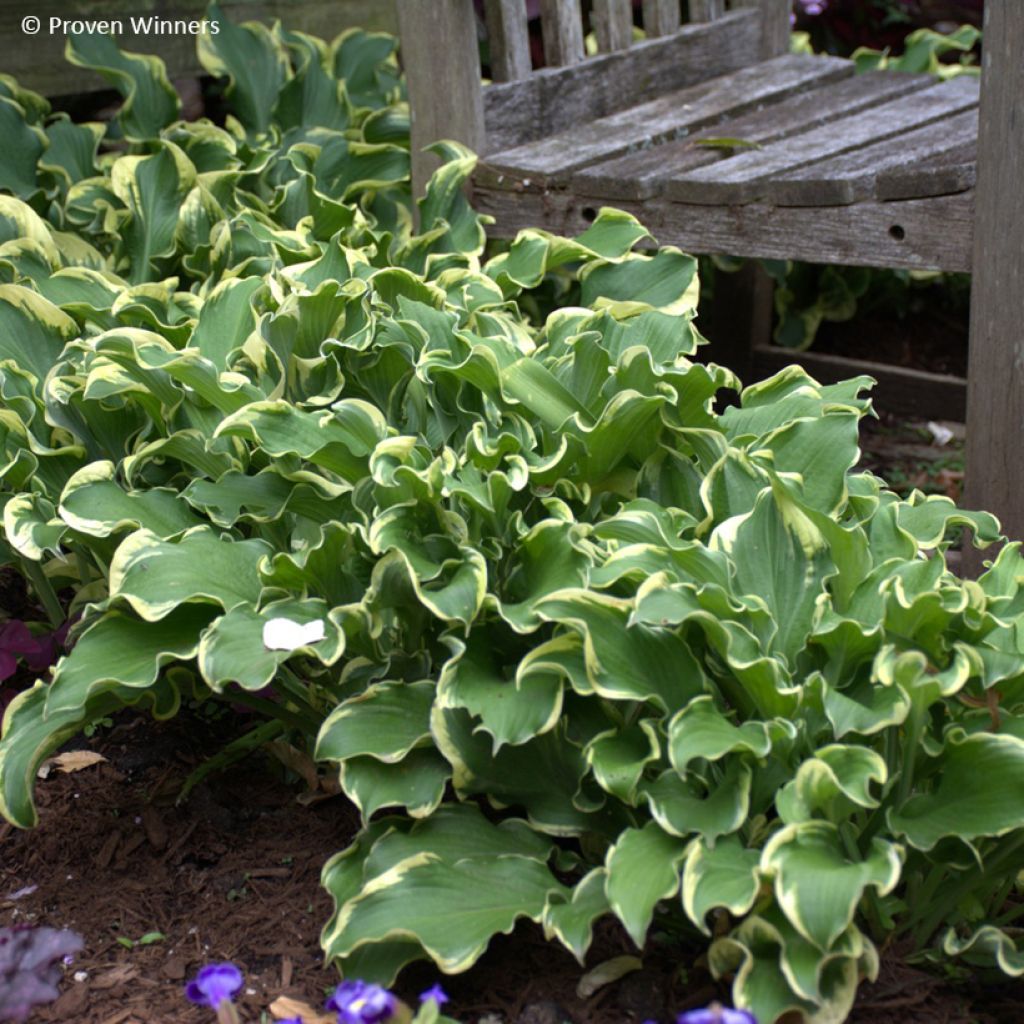

Hosta Wheee!
Hosta Wheee!
Hosta Wheee!
Plantain Lily, Funkia
I was eager to test this hosta, I received 3 pots with nothing apparent, hopefully they will wake up in good shape next year.
Carine, 01/12/2022
This item cannot be shipped to the selected country
Delivery charge from €5.90
More information
Schedule delivery date,
and select date in basket
This plant carries a 12 months recovery warranty
More information
We guarantee the quality of our plants for a full growing cycle, and will replace at our expense any plant that fails to recover under normal climatic and planting conditions.
From €5.90 for pickup delivery and €6.90 for home delivery
Express home delivery from €8.90.
Does this plant fit my garden?
Set up your Plantfit profile →
Description
The Hosta 'Wheee!', named Hosta of the Year 2021, is an original variety recognised for its intensely variegated and undulate leaves, produced in abundance by a medium-sized but vibrant plant. Its glossy leaves are finely marginated with cream-yellow on an apple-green background, throughout their lifespan from spring to autumn, and their thick texture deters slugs. Its summer flowering consists of lavender flower spikes. A characterful and reliable variety, ideal for enhancing moist and shaded areas of the garden or terrace.
The Hosta 'Wheee!', born in the USA from unknown parents, is a deciduous herbaceous plant that emerges from the ground in spring. It belongs to the asparagus family. It has a relatively slow but long-lasting growth and forms a clump of tightly packed leaves, reaching approximately 35cm (14in) in height and 72cm (28in) in spread, depending on the growing conditions. Its leaves are lanceolate with cordate bases. They have strongly undulate margins, and pointed tips. Cream-yellow margins extend from the tip of each green leaf down to the petiole that bears them. From the heart of its variegated foliage, in July-August, emerge flowering stems of about 60cm (24in) in height, of a violet hue, bearing racemes of bell-shaped campanulate flowers, non-fragrant, and mauve in colour.
Hostas thrive in moist, well-drained and rich soils; these plants dislike drought and scorching exposures. A location lit by full afternoon sun should be avoided as it can burn the leaves of these perennials. With their generous and decorative foliage, hostas are perfect as ground cover, border plants, or in partially shaded to fully shaded flower beds. Combine hostas with each other, as well as with ferns, Solomon's seal, and other low-growing ground cover perennials such as creeping bugleweed, dead nettles... These combinations allow you to enhance the shaded and slightly moist parts of the garden, creating a pleasant haven of shade for the summer. Hostas also thrive in pots, which should be placed in partial shade and watered regularly. Around a pond, plant them with knotweeds, sedge, and astilbes.
Most species commonly found in Western gardens have been introduced from Japan. Hostas are edible and are called "urui" in Japan, where they are commonly consumed.
Report an error about the product description
Hosta Wheee! in pictures
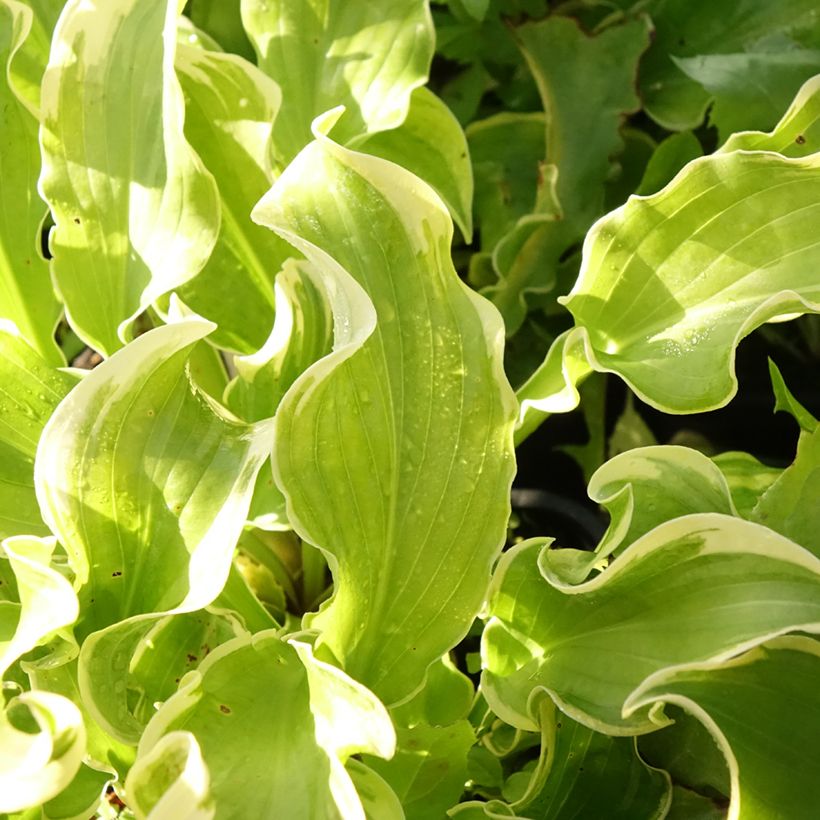

Flowering
Foliage
Plant habit
Botanical data
Hosta
Wheee!
Liliaceae - Hostaceae
Plantain Lily, Funkia
Cultivar or hybrid
Other Hostas - Plantain Lilies
Planting and care
Hostas are planted in spring or autumn. Hostas prefer a deep, fertile, humus-rich, loose soil, preferably neutral to acid (at least low in limestone), and moist to wet throughout the year. Plant them in partial shade or dappled shade, and in a sheltered location protected from strong winds.
Prepare a planting hole measuring 20cm (8in) in all directions. If your soil is heavy, mix equal parts of compost with crumbled soil, partially fill the hole, and place your plant with its root ball so that the top of the root ball is covered with 3cm (1in) of soil. Applying a slow-release fertiliser (such as bonemeal) will nourish your plant during its rooting period without the risk of burning. Make sure to position the collar well above ground level. Firmly tamp down the soil and water generously to eliminate air pockets. If the weather is dry, you will need to water regularly for a few weeks to facilitate your plant's establishment. Also, water regularly during dry summers.
With their common preference for moist areas, slugs and snails never stray far from hostas. Even though blue or variegated hostas often have thicker and tougher foliage, which is less appealing to slugs, these plants still need protection from gastropods. Protect your Hostas by surrounding them with ferramol-based pellets (approved for Organic Agriculture), eggshells, coffee grounds, wood chips, or any dry and rough natural substance that repels them. Hedgehogs are the gardener's best allies in the fight against gastropods because, unlike chickens, they do not till the soil and do not attack the young green shoots of plants. Finally, some plants have a repulsive odour for slugs, such as wormwood and garlic.
Planting period
Intended location
Care
-
, onOrder confirmed
Reply from on Promesse de fleurs
Summer flowering perennials
Haven't found what you were looking for?
Hardiness is the lowest winter temperature a plant can endure without suffering serious damage or even dying. However, hardiness is affected by location (a sheltered area, such as a patio), protection (winter cover) and soil type (hardiness is improved by well-drained soil).

Photo Sharing Terms & Conditions
In order to encourage gardeners to interact and share their experiences, Promesse de fleurs offers various media enabling content to be uploaded onto its Site - in particular via the ‘Photo sharing’ module.
The User agrees to refrain from:
- Posting any content that is illegal, prejudicial, insulting, racist, inciteful to hatred, revisionist, contrary to public decency, that infringes on privacy or on the privacy rights of third parties, in particular the publicity rights of persons and goods, intellectual property rights, or the right to privacy.
- Submitting content on behalf of a third party;
- Impersonate the identity of a third party and/or publish any personal information about a third party;
In general, the User undertakes to refrain from any unethical behaviour.
All Content (in particular text, comments, files, images, photos, videos, creative works, etc.), which may be subject to property or intellectual property rights, image or other private rights, shall remain the property of the User, subject to the limited rights granted by the terms of the licence granted by Promesse de fleurs as stated below. Users are at liberty to publish or not to publish such Content on the Site, notably via the ‘Photo Sharing’ facility, and accept that this Content shall be made public and freely accessible, notably on the Internet.
Users further acknowledge, undertake to have ,and guarantee that they hold all necessary rights and permissions to publish such material on the Site, in particular with regard to the legislation in force pertaining to any privacy, property, intellectual property, image, or contractual rights, or rights of any other nature. By publishing such Content on the Site, Users acknowledge accepting full liability as publishers of the Content within the meaning of the law, and grant Promesse de fleurs, free of charge, an inclusive, worldwide licence for the said Content for the entire duration of its publication, including all reproduction, representation, up/downloading, displaying, performing, transmission, and storage rights.
Users also grant permission for their name to be linked to the Content and accept that this link may not always be made available.
By engaging in posting material, Users consent to their Content becoming automatically accessible on the Internet, in particular on other sites and/or blogs and/or web pages of the Promesse de fleurs site, including in particular social pages and the Promesse de fleurs catalogue.
Users may secure the removal of entrusted content free of charge by issuing a simple request via our contact form.
The flowering period indicated on our website applies to countries and regions located in USDA zone 8 (France, the United Kingdom, Ireland, the Netherlands, etc.)
It will vary according to where you live:
- In zones 9 to 10 (Italy, Spain, Greece, etc.), flowering will occur about 2 to 4 weeks earlier.
- In zones 6 to 7 (Germany, Poland, Slovenia, and lower mountainous regions), flowering will be delayed by 2 to 3 weeks.
- In zone 5 (Central Europe, Scandinavia), blooming will be delayed by 3 to 5 weeks.
In temperate climates, pruning of spring-flowering shrubs (forsythia, spireas, etc.) should be done just after flowering.
Pruning of summer-flowering shrubs (Indian Lilac, Perovskia, etc.) can be done in winter or spring.
In cold regions as well as with frost-sensitive plants, avoid pruning too early when severe frosts may still occur.
The planting period indicated on our website applies to countries and regions located in USDA zone 8 (France, United Kingdom, Ireland, Netherlands).
It will vary according to where you live:
- In Mediterranean zones (Marseille, Madrid, Milan, etc.), autumn and winter are the best planting periods.
- In continental zones (Strasbourg, Munich, Vienna, etc.), delay planting by 2 to 3 weeks in spring and bring it forward by 2 to 4 weeks in autumn.
- In mountainous regions (the Alps, Pyrenees, Carpathians, etc.), it is best to plant in late spring (May-June) or late summer (August-September).
The harvesting period indicated on our website applies to countries and regions in USDA zone 8 (France, England, Ireland, the Netherlands).
In colder areas (Scandinavia, Poland, Austria...) fruit and vegetable harvests are likely to be delayed by 3-4 weeks.
In warmer areas (Italy, Spain, Greece, etc.), harvesting will probably take place earlier, depending on weather conditions.
The sowing periods indicated on our website apply to countries and regions within USDA Zone 8 (France, UK, Ireland, Netherlands).
In colder areas (Scandinavia, Poland, Austria...), delay any outdoor sowing by 3-4 weeks, or sow under glass.
In warmer climes (Italy, Spain, Greece, etc.), bring outdoor sowing forward by a few weeks.

































